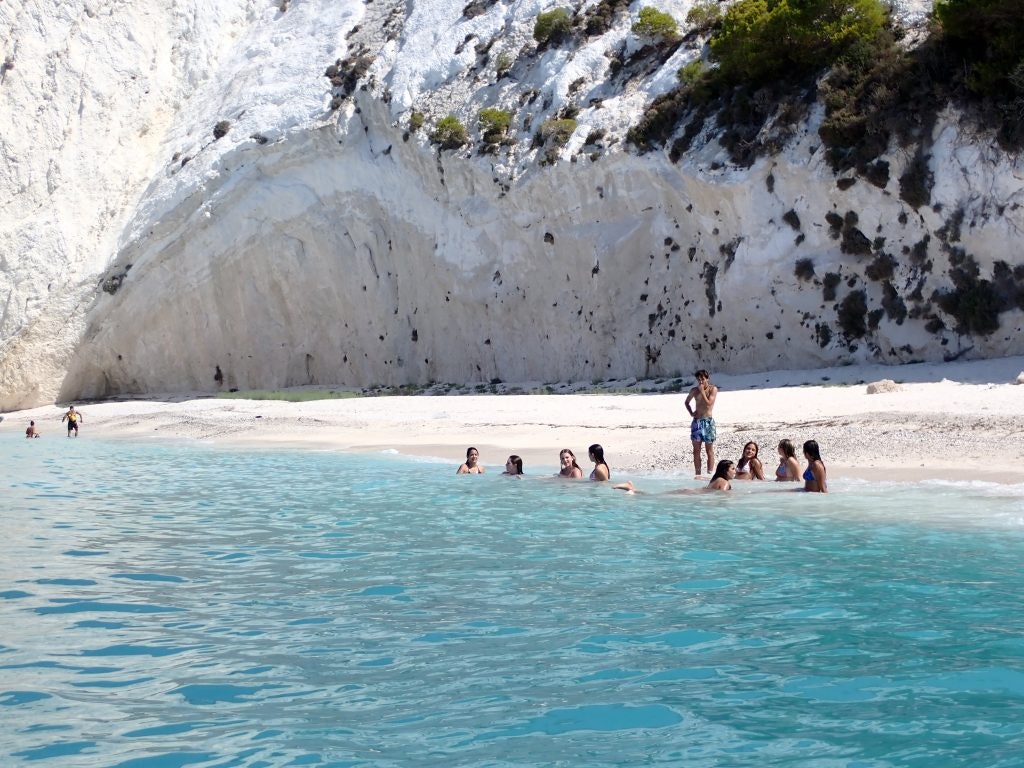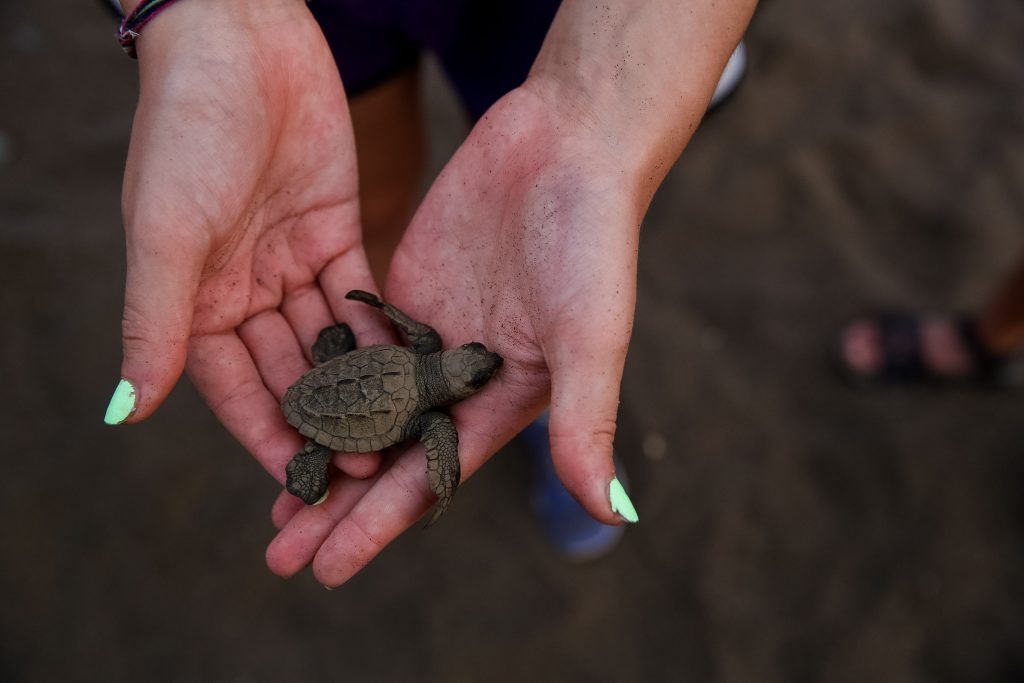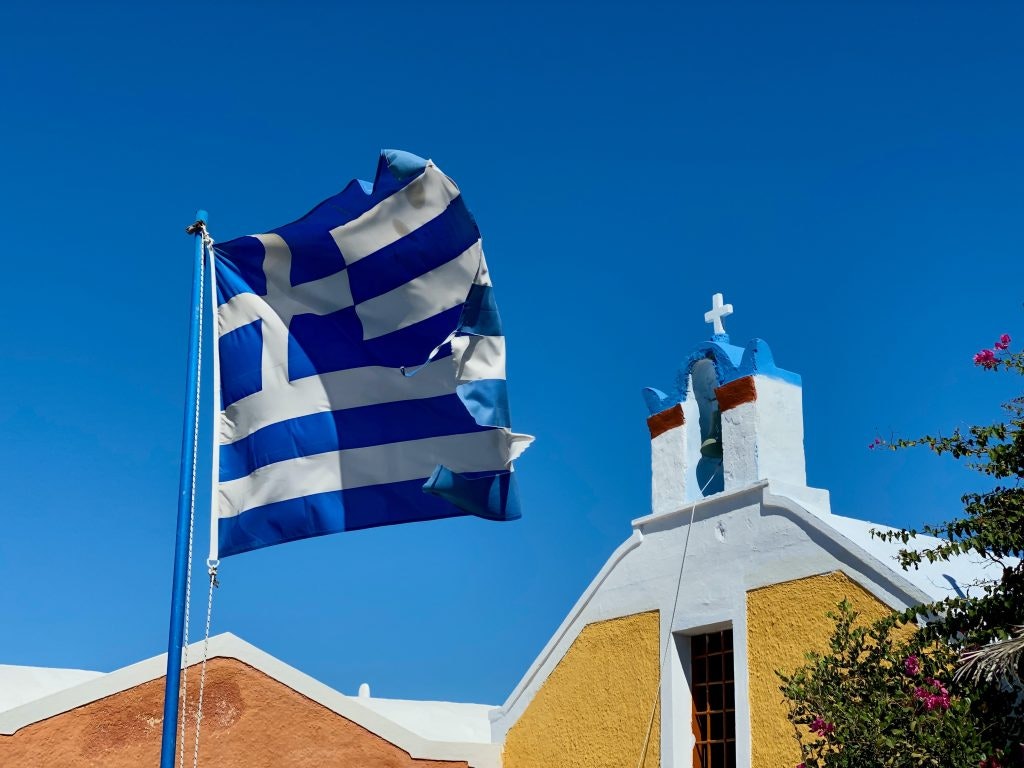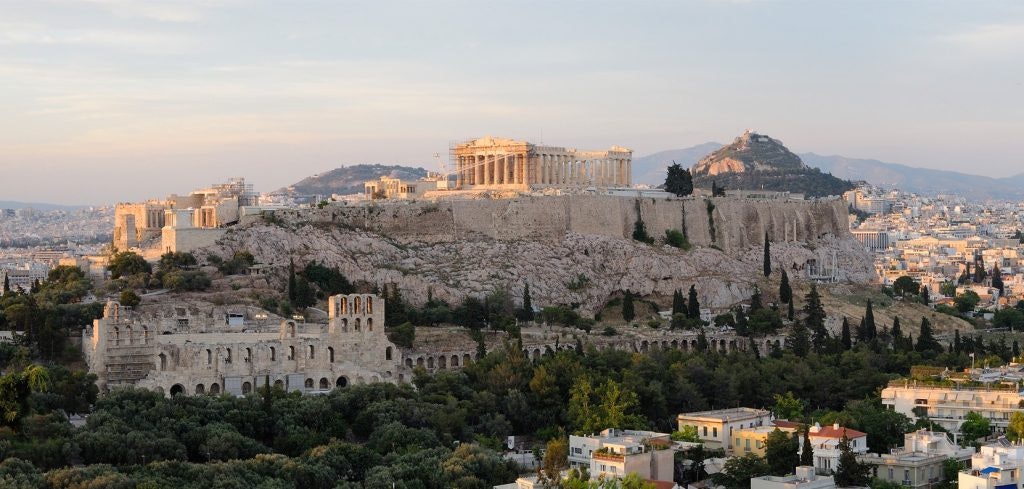2. The Greeks gave us a lot
The Greeks gave the world a lot. The nation created the first Olympic Games, and the Olympic Games as we know them were also first held in Greece in 1896.
Greece gave the world democracy, Western theater and Western philosophy, as well as a lot of medical knowledge. A lot of surprising inventions also come from Greece, including: the water wheel, the alarm clock, the catapult, the vending machine and the umbrella.
3. Ancient Greeks believed that Greece’s highest mountain was the home of the gods
Ancient Greeks believed that Mount Olympus, Greece’s highest mountain, was the home of the 12 Olympian gods:
- Zeus
- Poseidon
- Hera
- Demeter
- Aphrodite
- Athena
- Artemis
- Apollo
- Ares
- Hephaestus
- Hermes
- either Hestia or Dionysus
Standing at 9,570 feet (2,917 meters) above sea level, this mountain still has cultural significance as it was designated as a national park in 1938. Greece now has ten national parks but Mount Olympus was the first to gain the status. The mountain is also a World Biosphere Reserve and a popular hiking destination.

Students relax on the beach in Greece.
4. There are more visitors to Greece each year than people who live there
There are more visitors to Greece each year than people who live there. In 2024, Greece welcomed approximately 36.9 million international visitors between January and November, far exceeding the population, which amounts to just over 10 million.
With such an impressive coastline and beautiful views of the Mediterranean Sea, who can blame them?
5. Greece is one of the most homogenous countries in the world
According to Yahoo! Finance, Greece is one of the top 10 homogenous countries in the world, standing at number 8 on the list. The top 10 most homogenous countries in the world are:
- North Korea
- South Korea
- Japan
- Tunisia
- Italy
- Portugal
- Poland
- Greece
- Netherlands
- Yemen
6. Greece is the world’s 5th-largest producer of olive oil
Greece is the fifth-largest producer of olive oil in the world, (and 4th-largest in the European Union) coming behind Spain, Italy, Turkey and Tunisia, showing that it is serious business in Greece.
Olive oil is even featured in Greek mythology. Elais was a granddaughter of the god Dionysus and was also the Greek goddess of olive oil.
All these years later, olive oil is still significant, making up part of the famed Mediterranean diet. It’s one of the reasons Greek cuisine is so irresistible!
These figures reflect the International Olive Council (IOC)’s estimates for the 2024/25 crop year.

A student holds a turtle hatchling in her hands.
7. A not-so-fun fact about Greece: It’s home to endangered sea creatures such as the loggerhead turtle
Greece is home to endangered sea creatures such as the ceretta ceretta turtle, or loggerhead turtle. Specific Greek islands, such as Kefalonia and Zakynthos, offer important nesting locations for the loggerhead turtle.
However, according to the WWF, of every 1,000 loggerhead turtle hatchlings, only one will survive into adulthood. Fortunately, there are lots of conservation efforts, with many people working to ensure these beautiful creatures continue to live alongside us for as long as possible.

Greece is officially called the Hellenic Republic.
8. Greece’s official name is the Hellenic Republic
Greece’s official name is the Hellenic Republic and Greeks refer to themselves not as Greeks but as “Έλληνες”— Hellenes. The word Greek actually comes from the Latin word “Graeci” and Greece from the Latin word “Graecia.”
9. It’s illegal to wear heels in certain places
It’s illegal — yes, illegal — to wear heels in certain places. This may sound excessive, but it’s because your footwear could cause damage to important heritage sites such as the Acropolis and Odeon of Herodes Atticus in Athens. If you’re in any doubt about your desired location, opt for flats!

The Acropolis in Athens, Greece.







